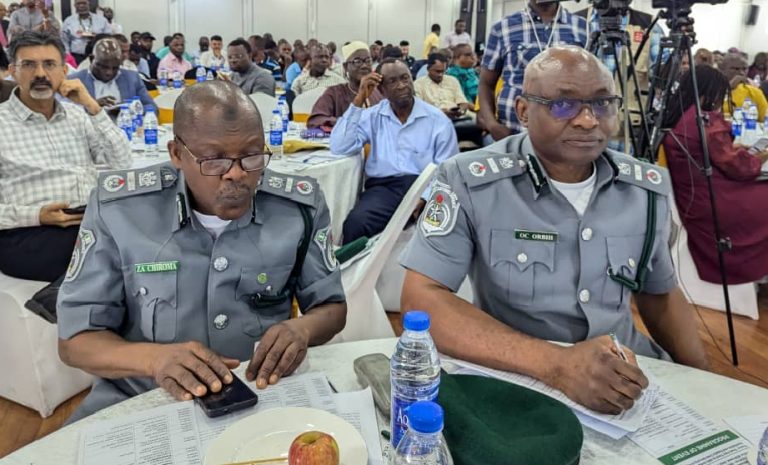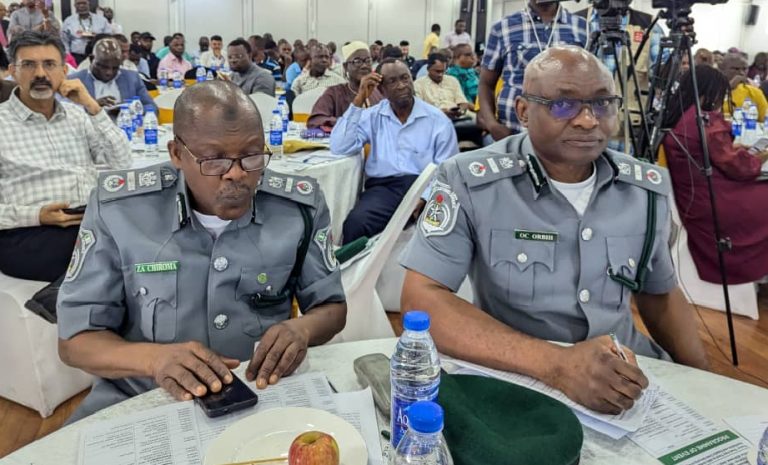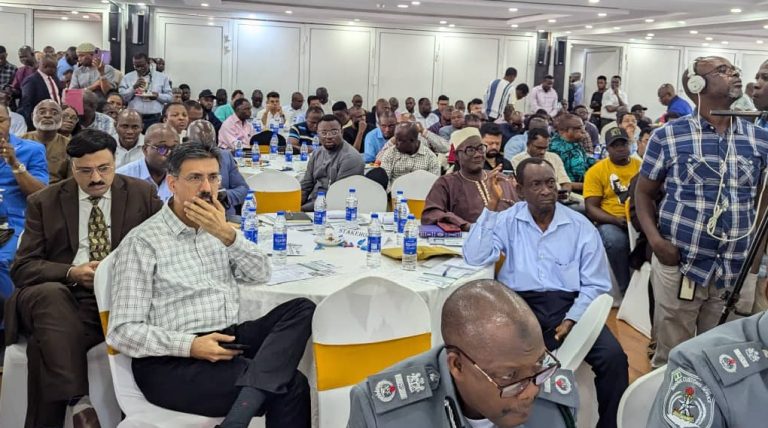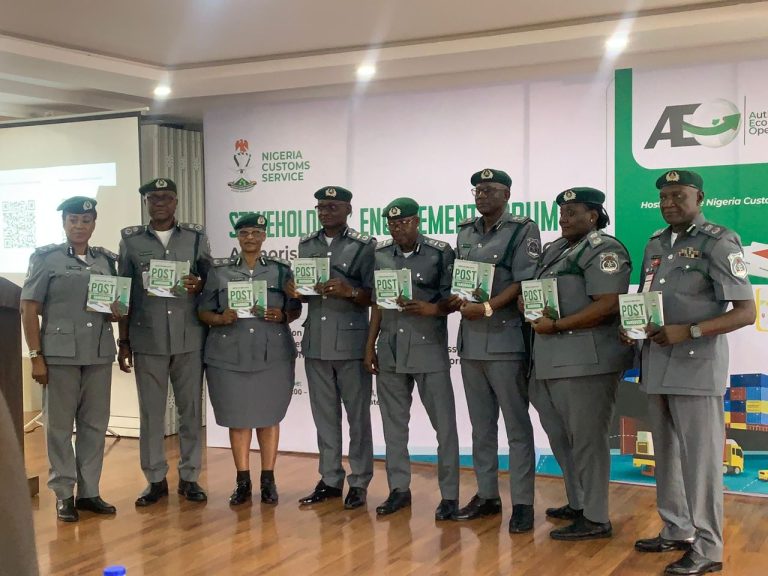Customs Report
Customs Engages Stakeholders Ahead of 2026 AEO Migration Dateline

BY FUNMI ALUKO
The Nigeria Customs Service (NCS) on Wednesday hit off with the sensitization of stakeholders ahead of the January 2026 full migration from the current Fast Track Scheme to the globally recognized Authorized Economic Operators (AEO) Programme.
Addressing stakeholders including importers, clearing agents and members of the organized private sector at the event held in Lagos, Comptroller General of Customs, Adewale Adeniyi explained that the migration is part of a broader reform agenda aimed at enhancing trade facilitation and strengthening supply chain security.
This is even as he stated that the AEO program represents a paradigm shift in the way the Customs interacts with the private sector.
The CGC who was represented by the Zonal Coordinator in charge of Zone ‘A’, Assistant Comptroller General (ACG) Charles Orbih, revealed that while the Fast Track Scheme served its purpose for over a decade, it lacked a formal legal framework and was no longer aligned with the dynamic nature of the global supply chain.
The AEO programme, he explained, is a more structured, risk-based, and transparent model developed in line with the World Customs Organization’s SAFE Framework of Standards. He listed the benefits for certified businesses to include faster clearance, reduced physical inspections, dedicated service desks, and priority treatment during port congestion; all of which contribute to cost reduction and improved supply chain efficiency.
Adeniyi said a recent Time Release Study (TRS) revealed that AEO-certified businesses already enjoy a significant reduction in cargo clearance time, averaging 43 hours compared to non-AEO traders.
“The AEO programme was first piloted in Nigeria on 15th April 2024, and following thorough testing, capacity building, and stakeholder consultations, the national launch was held on 14th February 2025.
The objective is to identify and reward businesses that demonstrate consistent compliance with Customs and tax regulations by granting them faster, more predictable, and more efficient clearance processes.
“AEO-certified businesses enjoy a wide range of benefits, including faster cargo clearance and release, reduced physical inspections, dedicated service desks at ports and terminals, priority treatment during disruptions or port congestion, improved dispute resolution channels, greater supply chain visibility and global recognition.
“This reform not only supports trade facilitation but helps Nigeria meet its obligations under the WTO Trade Facilitation Agreement, making our trade ecosystem more competitive and business-friendly,” he said.

Customs engages stakeholders on AEO programme migration ahead of January 2026 take-off

Speaking on the Post Clearance Audit (PCA) reforms, Adeniyi said the unit has been restructured with a dedicated Assistant Comptroller-General to ensure robust audit-based controls without disrupting legitimate trade, thereby reinforcing the AEO framework.
Earlier in his welcome address, Assistant Comptroller General of Customs in charge of the PCA unit, Zanda Chiroma, noted that the Fast Track scheme will be officially decommissioned on December 31, 2025, and urged all existing beneficiaries to submit new AEO applications through the official portal aeo.nigeriatradehub.gov.ng.
Chiroma assured stakeholders of a smooth and credible transition process, with clear operational guidelines and a trained team of validators in place.
“This migration is taking place within the broader framework of NCS reform—one that is anchored on transparency, efficiency, and evidence-based compliance management. Central to this reform is the transformation of the Post Clearance Audit (PCA) regime.
“In recognition of the critical role PCA plays in Customs modernization, the PCA Unit was officially moved from the Tariff and Trade Department to the Office of the Comptroller-General of Customs with effect from 19 December 2024. This strategic realignment underscores the high-level priority now accorded to PCA as a core compliance and revenue assurance function”, he said.

ACG Charles Orbih (4th from left) lead senior Customs officers to unveil the Post Clearance Audit procedures handbook.
The Director General of the Manufacturers Association of Nigeria (MAN), Segun Kadir, represented by the Secretary, Sunday Opeh, however, raised concerns about the AEO program’s application process.
He expressed concerns surrounding the purported tedious and difficult conditions for enlistment, which he claimed has resulted in a limited number of companies being on-boarded.
THE MAN top shot appealed to the Customs management to simplify the process and gradually admit companies, expressing fears that a difficult transition could hinder business for manufacturers.
Kadir also called on the Customs to address the issue of other security agencies, particularly the police, interfering with consignments, a challenge he said plagued the Fast Track scheme.
Responding to these concerns, AEO Team lead, Chief Superintendent of Customs Nnenna Awa, assured stakeholders that unlike the previous scheme, the AEO program has on-boarded agencies such as the DSS, National Security Adviser (NSA), NAFDAC, and SON to ensure seamless trade facilitation and eliminate delays.
She said the AEO current application portal, which was opened February 14, 2025, will be closed on August 16, 2025.
A major highlight of the event was a live demonstration of the online AEO application process and the unveiling of the Post Clearance Audit procedures handbook.


































